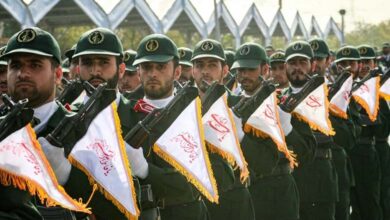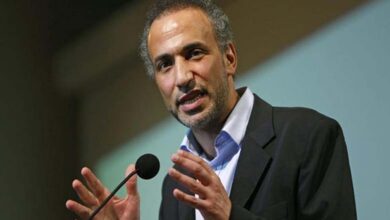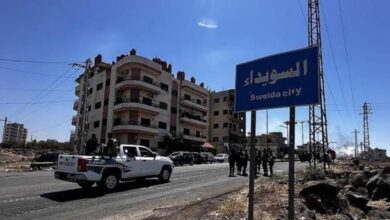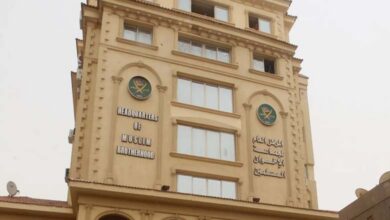The Haredim and Military Conscription… A Street Confrontation Threatening Netanyahu’s Government
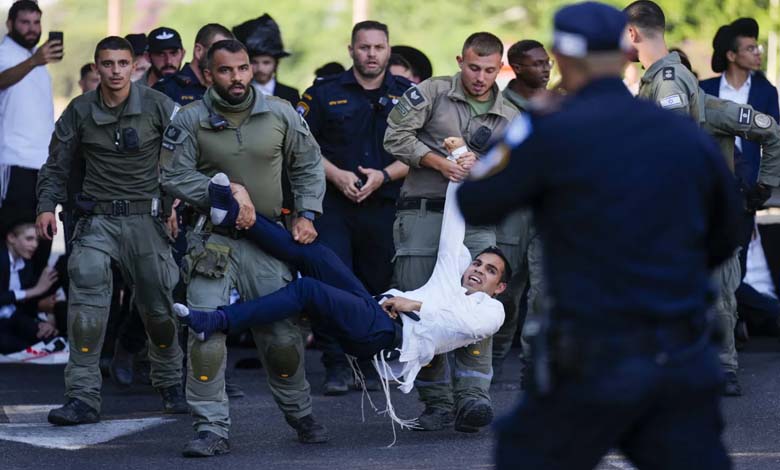
In a protest likely to deepen divisions in a country still grappling with the aftermath of a two-year war, Israel witnessed the largest Haredi mobilization, threatening to topple the government.
Last Thursday, massive crowds of Haredi men dressed in black filled the entrance to Jerusalem in a demonstration against government plans to impose military service on their community.
-
New Failure for Netanyahu: Military Summons Drive “Haredim” to Protest
-
Israel Approves a Major Settlement Project South of Jerusalem
Participants chanted religious songs, applauded, and held signs declaring they would rather go to prison than join the army.
Due to their strict observance of modesty rules prohibiting the mixing of unmarried men and women, the protest was exclusively male, except for a small separate area for women.
Many demonstrators stated that they “prefer to die rather than join the army, fearing that it would corrupt their strict religious traditions,” according to the Associated Press.
-
Sa’ar the “Rebel” and Netanyahu: From Bitter Foe to “Savior”
-
On the Eve of Gaza Negotiations Resumption, Netanyahu’s Stance “Shatters” Hostage Families’ Hopes
The current exemption granted to ultra-Orthodox Jews, known as Haredim, from military service has created deep divisions in Israeli society, posing the most serious threat to Prime Minister Benjamin Netanyahu’s government.
The agency noted that Netanyahu relies on religious Haredi parties to maintain his fragile coalition, but their efforts to pass a law granting permanent exemption from military service could trigger the government’s collapse and early elections.
Yesterday’s protest largely paralyzed the city, with roads closed and public transportation halted due to the massive crowds.
-
Iran’s Secret Document Ignites a Dispute within the Israeli Military and Netanyahu’s Office
-
Netanyahu between Street Anger and the Grip of the Right… Limits of Tolerance “at Risk”
Who are the Haredim?
Haredi Jews number around 1.3 million, roughly 13% of Israel’s population, and most refuse military service, considering full dedication to Torah study a higher religious duty.
The Haredim argue that the army, as a secular institution, cannot support their lifestyle strictly guided by religious teachings. They claim to contribute to national security through study and prayer.
The exemption from mandatory conscription dates back to Israel’s founding in 1948, when a limited number of religious students were granted special exemption. Over
-
Trenches in Gaza: Netanyahu “Proposes” a “Pre-Rejected” Plan
-
After the Truce… a Silent Enemy Threatens Gaza
the decades, under pressure from politically powerful religious parties, these numbers have grown substantially.
In 2017, the Israeli Supreme Court ruled these exemptions illegal, but successive governments resorted to delays and procrastination to prevent the adoption of an alternative law.
With the outbreak of war in Gaza on October 7, 2023, and the death of over 900 Israeli soldiers, public anger over Haredi exemptions resurfaced, at a time when the army faces a severe personnel shortage.
Earlier this year, the army sent draft notices to 80,000 Haredi men aged 18–26, while the actual number of recruits last year did not exceed 3,000.
-
New Gaza between American Opportunity and Palestinian Fears
-
Harsh living and the specter of war: Gaza’s exhausted residents still suffering
The Greatest Challenge Facing Netanyahu’s Government
The country’s two ultra-Haredi parties were an integral part of Netanyahu’s fragile coalition before withdrawing in the summer in protest over the military draft bill.
However, they often continue to vote with Netanyahu, allowing his government to remain in power.
Yet, the insistence of Haredi leaders on passing a law legalizing permanent exemption could alter this balance.
Lahav Harkov, senior fellow at the Misgav Institute for National Security, notes that the issue of Haredi conscription has led to several early elections over the past decade.
Elections are currently scheduled for November next year, but Netanyahu may be forced to call early elections in the coming months.
Roots of the Recent Protest
The spark for the recent demonstration came after the decision to bring the draft bill for discussion in the Knesset committee next week, despite strong opposition, even within Netanyahu’s own party (Likud), marking the first step toward a plenary vote.
Shuki Friedman, vice president of the Jewish People Policy Institute, a Jerusalem-based research center and expert on the Haredim, explained that Haredi Knesset members were unable to secure their community’s two main demands: permanent exemption or increased community funding.
-
Vance Tackles Thorny Issues in Gaza: Hamas’s Arsenal and Reconstruction
-
Gaza Truce: Israel identifies a body as U.S. diplomatic efforts intensify to sustain calm
A series of Supreme Court rulings reduced the budget allowing Haredi men to study full-time while receiving a state salary. Until now, parties have relied on temporary funding, but these salaries are increasingly at risk.
Friedman added: “It is a protest against the government to demonstrate their ability to bring it down, and against the opposition to show their strength. Within the Haredi community, they want to display unity in the face of pressure.”




